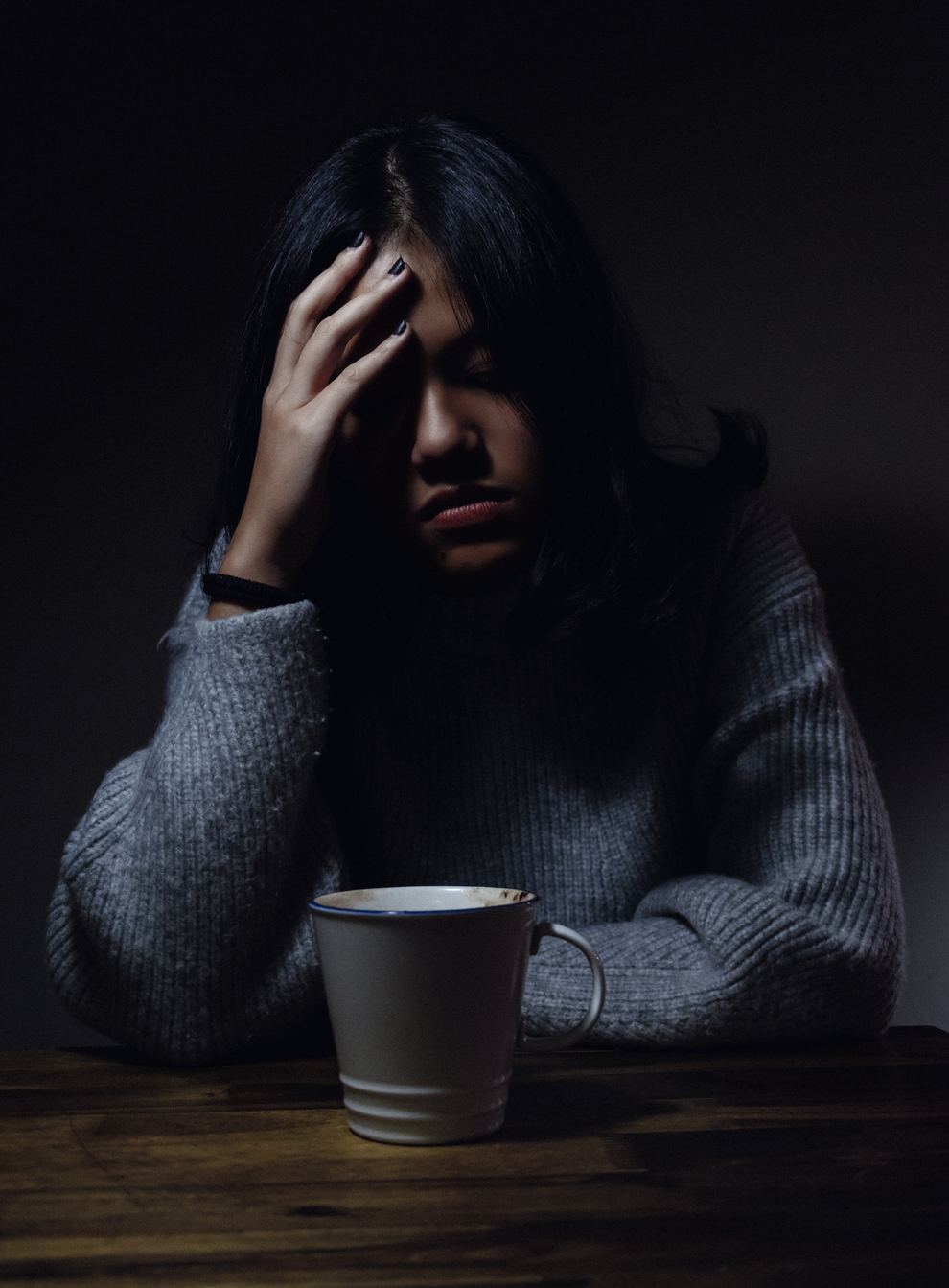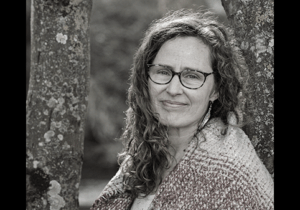[et_pb_section fb_built=”1″ _builder_version=”4.16″ custom_padding=”5px|0px|2px|0px|false|false” global_colors_info=”{}”][et_pb_row _builder_version=”4.16″ global_colors_info=”{}”][et_pb_column type=”4_4″ _builder_version=”4.16″ custom_padding=”|||” global_colors_info=”{}” custom_padding__hover=”|||”][et_pb_text _builder_version=”4.18.0″ hover_enabled=”0″ global_colors_info=”{}” sticky_enabled=”0″]
An Allies member recently posted a comment that underlined her worry, and asked for guidance with letting go:
“…for some reason I am worried she will go back to drinking. She doesn’t live with me and I’m afraid to directly ask her – Are you back in the IOP? Are you still not drinking? These questions nag at me. I know I have to step back but it’s so hard. Is there a trick to letting go and focusing on me?”
*This post originally appeared on our Member Site Sanctuary, a place where members can get away, breathe, take time to reconnect. To sign up for our special offer and benefit from the Allies in Recovery eLearning program, click here.
[/et_pb_text][/et_pb_column][/et_pb_row][et_pb_row _builder_version=”4.16″ global_colors_info=”{}”][et_pb_column type=”4_4″ _builder_version=”4.16″ custom_padding=”|||” global_colors_info=”{}” custom_padding__hover=”|||”][et_pb_text _builder_version=”4.18.0″ text_font=”||||||||” custom_padding=”0px||0px” hover_enabled=”0″ global_colors_info=”{}” sticky_enabled=”0″]
Love and worry
I come from a long line of worriers. In fact, I wouldn’t be surprised if most of us do. It seems to me that most families have at least one worrier who takes it to olympic levels.
I was thinking about worrying this morning. It may (or may not) be true that the more we love someone, the more we’re likely to worry about them.
We worry about losing them,
Or when we don’t know how they are.
We worry when they’re on unstable footing,
Or when they’re unhappy.
We worry they’ll make the wrong choices,
Then make the wrong choices again.
We worry they’ll never figure it out.
We worry about the path they’ve chosen,
Or the path that has chosen them.
[/et_pb_text][/et_pb_column][/et_pb_row][et_pb_row _builder_version=”4.16″ global_colors_info=”{}”][et_pb_column type=”4_4″ _builder_version=”4.16″ custom_padding=”|||” global_colors_info=”{}” custom_padding__hover=”|||”][et_pb_text _builder_version=”4.18.0″ hover_enabled=”0″ global_colors_info=”{}” sticky_enabled=”0″]
Is worrying proof of love, though?
Does worrying convey love to the object of the worry? Or, as I suspect, does active, obsessive worrying actually corrode the love that’s there, scratching away at its bark and slowly sapping the life force from the relationship?
For my part, I am able to find worry (about me) to be sweet, up to a certain point. It crosses a line when I feel that the person doing the worrying is causing themselves real pain or mental anguish, or when their faith in me seems to be overpowered by the dark outlook.
Worrying may well be “natural” and “human.” In my observations and relationships, I’ve seen that worrying can almost be a pastime for some, or even an addiction. However, I have also come to understand that giving in to incessant worry is not inevitable in life.
[/et_pb_text][/et_pb_column][/et_pb_row][et_pb_row _builder_version=”4.16″ custom_padding=”16px|0px|1px|0px|false|false” global_colors_info=”{}”][et_pb_column type=”4_4″ _builder_version=”4.16″ custom_padding=”|||” global_colors_info=”{}” custom_padding__hover=”|||”][et_pb_text _builder_version=”4.18.0″ hover_enabled=”0″ global_colors_info=”{}” sticky_enabled=”0″]
We have the power to choose our emotional response
Our own beliefs about the worrying are key. Here’s a passage from Allies in Recovery’s Learning Module 7 – Caring for Myself When Negative Feelings Get in the Way:
“Think about this. This is a crucial concept. Most of the world believes that it is the event that leads to the feeling. We fool ourselves time and time again. If events, or what people say and do, did cause our feelings, we would have no power. We would continually be at the mercy of outside events: what people say and do, or a hurricane, or loss of money, or what your loved one does, because we believed that the event caused the feeling. But when we realize the tremendous power we have….The Power of Choice…. then we CAN control our emotional response (with practice!). We can then take better care of ourselves. We can respond more calmly and thoughtfully to what our loved one does and steer them towards reduced use and treatment.” (to watch an exerpt of this Module, click here. Full Modules are available to our members.)
[/et_pb_text][/et_pb_column][/et_pb_row][et_pb_row _builder_version=”4.16″ global_colors_info=”{}”][et_pb_column type=”4_4″ _builder_version=”4.16″ custom_padding=”|||” global_colors_info=”{}” custom_padding__hover=”|||”][et_pb_text _builder_version=”4.18.0″ hover_enabled=”0″ global_colors_info=”{}” sticky_enabled=”0″]
I polled some Allies team members on the subject of worry. Here are some of their thoughts and strategies.
How does worry manifest in your body? How do you notice it?
- “Back, neck, shoulders. Irritability.”
- “I feel worry in my temples, behind my eyes, in my stomach.”
- “I feel it in my stomach and my esophagus, throat area.”
On the Worry-Love connection:
- “Worrying may prove love, but saying you’re worried may mean it’s about you.”
- “Worry proves you care, but that you are afraid.”
- “It does not prove to person that I love them but it feels like proof to ME that I love them.”
How can families step back from Worry about a loved one? What works for you?
- “To not plunge into worry, I have a system of catching myself when those waters start to surge within. I then pray, meditate, walk the dog, phone a friend, BREATHE, hit a meeting”
- “[Use] Module 7: allow the feelings to come, acknowledge them, use internal dialogue to rationalize thoughts (talk it through in your head and sometimes saying it out loud helps too), calm feelings of fear, nervousness, etc. (Maybe breathing techniques to calm physical reactions to the thoughts and feelings), Pause (and the pause can be short or long depending on the need to respond to the event), gather thoughts on the best way to respond…..Practice, practice, practice…..Plus taking care of yourself outside of crisis so it is easier when in crisis.”
- “Meditating. A moment alone to consciously let obsessiveness go. Or an action to address problem, if possible.”
Does worry help in some ways?
- “I think that it does. SUD is a difficult issue to have, and if we did not worry we would not be driven to find solutions to problems. The bigger issue is: when does worry get in the way of responding appropriately and when is worrying all-consuming and unproductive? Maybe that is why we never completely get rid of bad feelings and thoughts, because we are supposed to have them during difficult times. Worrying can also help us to really appreciate the moments free of worry and not take those moments for granted.”
There is much wisdom floating about within the Allies in Recovery team. And each of you, family members and professionals, also possesses your own. I believe that listening to your own inner voice of wisdom is just as important as heeding anyone else’s.
[/et_pb_text][/et_pb_column][/et_pb_row][et_pb_row _builder_version=”4.16″ global_colors_info=”{}”][et_pb_column type=”4_4″ _builder_version=”4.16″ custom_padding=”|||” global_colors_info=”{}” custom_padding__hover=”|||”][et_pb_text _builder_version=”4.18.0″ hover_enabled=”0″ global_colors_info=”{}” sticky_enabled=”0″]
Finally, my own two cents
For me, an antidote to worrying is cultivating feelings of faith. Faith comes in so many forms. People can find it in so many places or ideas. To me, it is synonymous with a letting go, and a willingness to trust the universe, the invisible, the powerful energies around and within us.
It is not an escape, it’s a deep exhale.
And it’s not so easy. Maybe this song can help, for the moments when the “road gets dark” … (lyrics below).
[/et_pb_text][/et_pb_column][/et_pb_row][et_pb_row _builder_version=”4.16″ global_colors_info=”{}”][et_pb_column type=”4_4″ _builder_version=”4.16″ custom_padding=”|||” global_colors_info=”{}” custom_padding__hover=”|||”][et_pb_code _builder_version=”4.18.0″ text_orientation=”center” max_width=”60%” module_alignment=”center” hover_enabled=”0″ global_colors_info=”{}” sticky_enabled=”0″][/et_pb_code][/et_pb_column][/et_pb_row][et_pb_row _builder_version=”4.16″ custom_padding=”27px|0px|0|0px|false|false” global_colors_info=”{}”][et_pb_column type=”4_4″ _builder_version=”4.16″ custom_padding=”|||” global_colors_info=”{}” custom_padding__hover=”|||”][et_pb_text _builder_version=”4.18.0″ hover_enabled=”0″ global_colors_info=”{}” sticky_enabled=”0″]
Lyrics—Have a Little Faith in Me—by John Hiatt
When the road gets dark
And you can no longer see
Just let my love throw a spark
And have a little faith in me
And when the tears you cry
Are all you can believe
Just give these loving arms a try
And have a little faith in me
And
Have a little faith in me
Have a little faith in me
Have a little faith in me
Have a little faith in me
When your secret heart
Cannot speak so easily
Come here darlin’
From a whisper start
To have a little faith in me
And when your back’s against the wall
Just turn around and you will see
I will catch, I will catch your fall baby
Just have a little faith in me
Have a little faith in me
Have a little faith in me
Have a little faith in me
Have a little faith in me
[/et_pb_text][/et_pb_column][/et_pb_row][et_pb_row _builder_version=”4.16″ custom_padding=”16px|0px|3px|0px|false|false” global_colors_info=”{}”][et_pb_column type=”4_4″ _builder_version=”4.16″ custom_padding=”|||” global_colors_info=”{}” custom_padding__hover=”|||”][et_pb_text _builder_version=”4.18.0″ text_font=”||||||||” hover_enabled=”0″ global_colors_info=”{}” sticky_enabled=”0″]
[/et_pb_text][/et_pb_column][/et_pb_row][/et_pb_section]



